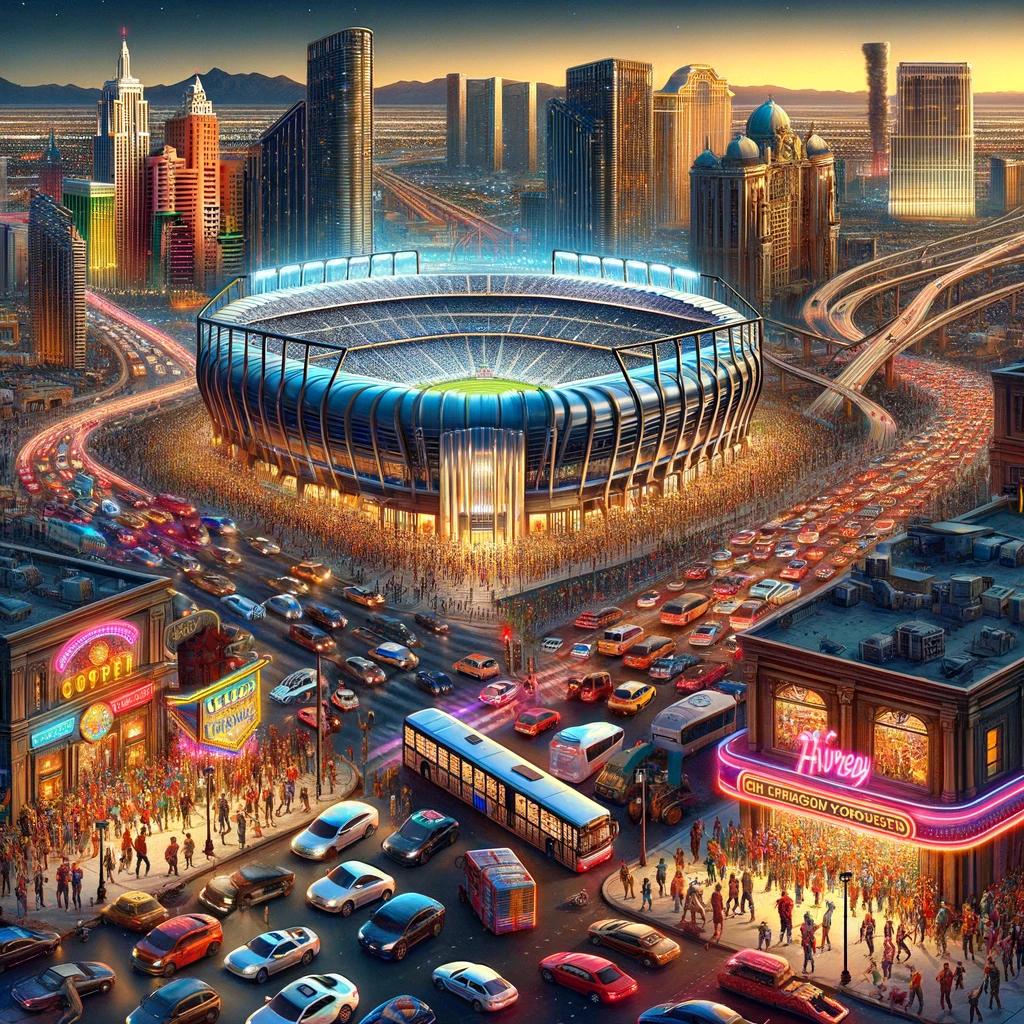Vegas Super Bowl: A Billion-Dollar Mirage or Financial Reality?

I love living in Las Vegas. Vegas is the stomping ground for generation after generation of wealthy magnates, entertainers, and socialites. Here, we have barely gotten over the hangover of Formula 1, and now we brace ourselves for the next sports extravaganza.
On February 11, our city will host Super Bowl LVIII. The Big Game has been pined over since construction on Allegiant Stadium started in November 2017 (the second most expensive arena in the world).
According to the Las Vegas Review-Journal, the Las Vegas Convention and Visitors Authority (LVCVA) voted unanimously to make a $40 million commitment to bring The Big Game to Vegas.
Does this make sense for people who actually care about this city? Let's discuss the numbers.
Money In
It's estimated that the Super Bowl could bring $1 billion to the city. This bold statement is according to Jeremy Aguero, a Las Vegas Super Bowl Executive Committee member. This is not net profit, nor does the speculation come with any facts on how that number was derived.
For most cities, hosting the Super Bowl will draw a swarm of visitors to their area. The hope is that people, after visiting a host city, will love it so much that in the future, they will visit again. However, there is no tangible way to track that.
And, is there anyone who honestly doesn’t “know” Vegas? We have a fascinating mob history, still love “Ole Blue Eyes,” and 24-hour drinking and weed is legal! What is left to say? Throw in ‘round-the-clock gambling and star entertainment, and I don’t know if more advertising is what the Sin City needs.
Jobs
In times of major events, restaurants, hotels, clubs, and EVERYTHING else costs more. Considering that, it makes sense that service staff SHOULD make more money, assuming people tip as expected. Money can’t buy class, after all.
But that will primarily be for the workers who are currently employed.
Will temporary workers be hired for the event? Absolutely; however, they will probably be quickly let go.
Is that economic growth?
According to an article in Forbes: "The NFL will control and receive 100% of the revenues from all ticket sales, including ticket sales in all suites. In addition, the NFL must have exclusive access to all club seats." Will the agreement change for Vegas’ Big Game? Probably not. Past Big Game tickets have cost anywhere from $650 to $6,200.00. Allegiant seats 65,000 people; that, my friends, is a lot of money.
AND the NFL gets to use the stadium for free.
Money Out
Historically the NFL has had copious contract riders. These riders include lodging for the teams and their staff, transportation during their stay, and, of course, security. The Minneapolis's Star Tribune once obtained the NFL's 153-page bid book containing all this information. The book laid out the perks a host city is expected to grant, like tax exemptions for game ticket revenue and other city-specific tax exemptions.
The contract usually states that all those costs will be reimbursed to the NFL if not granted. Pay now or pay later, but you pay.

But I digress…
City Revenue
Economists have repeatedly stated that the estimated revenue earned by the hosting city is nowhere near what is speculated. In addition, after the event, the actual numbers are usually not made public.
With Vegas being a tipping town, the hope is that the money will reach locals faster than in other cities.
Ad revenue is massive, and CBS has almost completely sold out of advertising slots for the Big Game, where a 30-second commercial can cost a company $6.5 million to $7 million. Again, Vegas gets none of that.
The Hype
LVCVA has built anticipation with its latest series of commercials around the “Excessive Celebration Encouraged” campaign. The commercials are cool, and everything I love about this city.
Still, maybe I’m being overly cautious, but I don’t want to see people drunk off their asses destroying my city as they excessively celebrate. We had peace after the Golden Knights won the cup, but those revelers were primarily locals.
With that in mind, we need to think of the expenditures, such as the increased police presence, to manage the estimated 450,000 people in our city.
Some studies from economists have shown Big Games in the past have resulted in a net loss for the city.
Glendale, Arizona’s mayor, said the city lost $1 million hosting the Big Game after all the dust settled in 2008.
San Francisco ate a $4.8 million public service bill for the 2016 Santa Clara Big Game.
So, who actually thinks this is a profitable endeavor for our city?
Gambling
Our city is made for decadence and indulgence, and I am here for it.
Unlike other host cities, Las Vegas is made for entertainment and flat-out adulting. Besides the brief time that Vegas tried to convince families we were a family destination, yeah, that was ridiculous. Visitors to the Big Game will have 24-hour drinking and gambling to accompany the football craziness. LVCVA knows this and is betting on it.
I don’t know what the final numbers will be when the Super Bowl is finished. My hope is it will be a windfall for the city. But, in a few years, you will sum up this trip as “We flew down to Vegas to see the Super Bowl, and we had a good time.”
Will that alone be the determining factor for visitors to return? I don’t know, but it will be one hell of a spectacular Super Bowl.